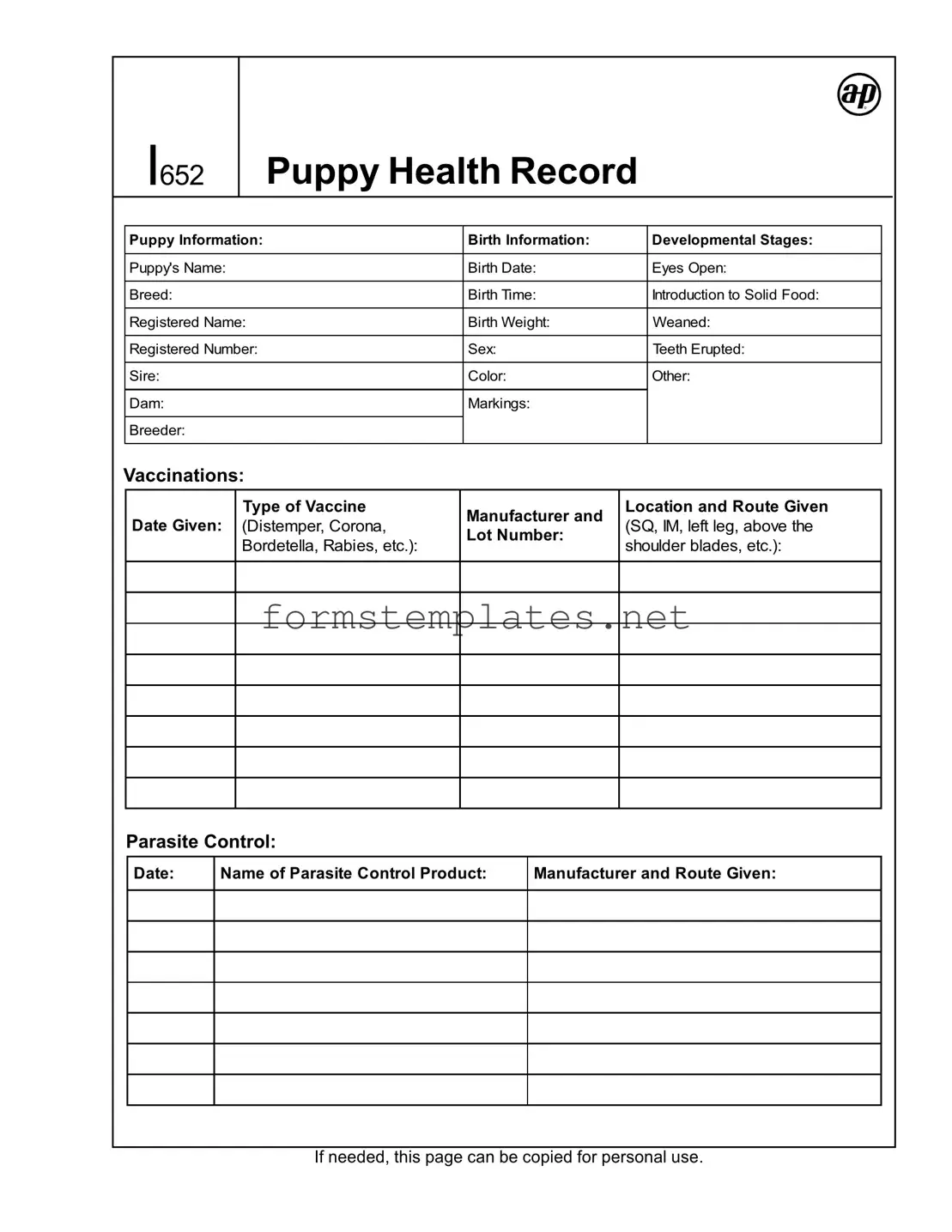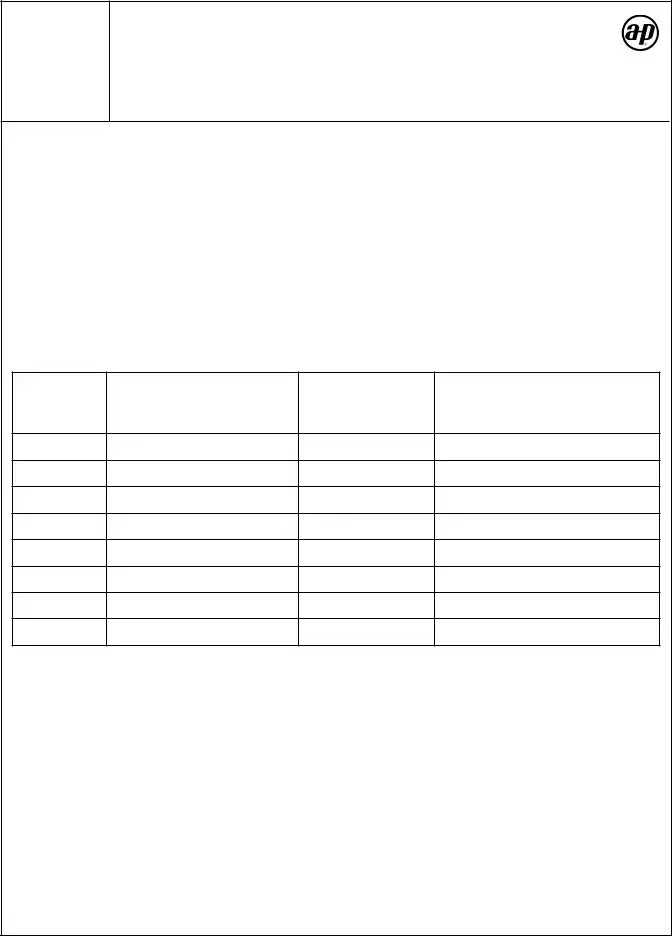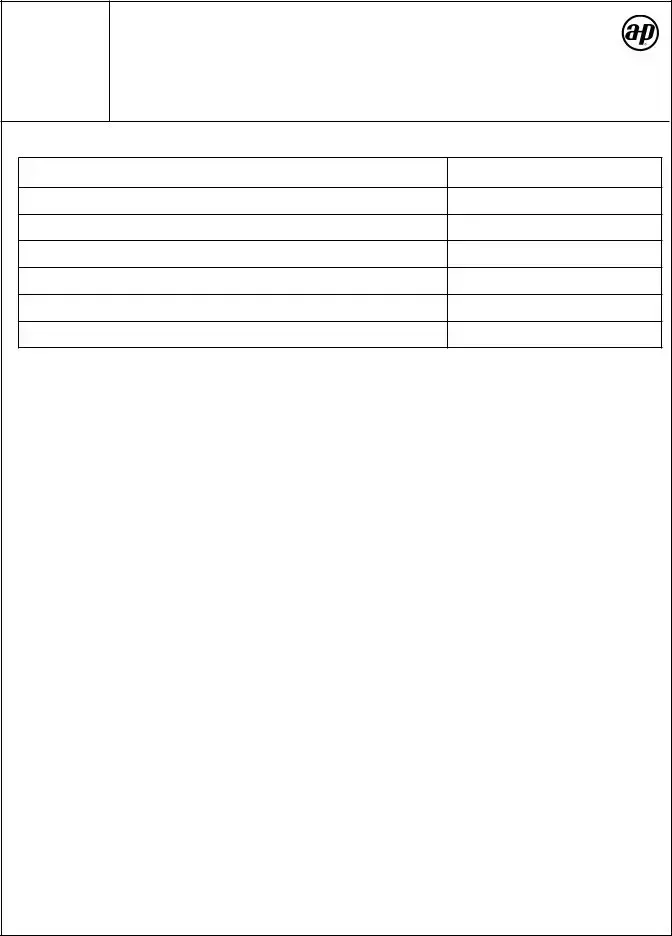The Puppy Health Record form serves as a comprehensive log for tracking a puppy's health and developmental milestones. It includes important information such as vaccination dates, weight, and other health-related events. This record helps owners and veterinarians monitor the puppy's growth and health status over time.
The form captures various details about the puppy, including:
-
Puppy's name and registered name
-
Birth information such as date, time, weight, and breed
-
Developmental stages like when eyes open and when solid food is introduced
-
Vaccination records including dates and types of vaccines
-
Parasite control information
-
Examinations or procedures performed
How do I fill out the vaccination section?
In the vaccination section, you should include the date the vaccine was given, the type of vaccine administered (e.g., Distemper, Bordetella), the manufacturer, and the location where it was administered (e.g., SQ, IM). This information is crucial for keeping an accurate health history for the puppy.
What vaccinations are typically required for puppies?
Puppies usually require several vaccinations to protect them from common diseases. The core vaccines often include:
-
Distemper
-
Parvovirus
-
Bordetella
-
Rabies
Consult your veterinarian for a vaccination schedule tailored to your puppy's needs.
When should I start giving heartworm medication?
Heartworm medication can typically begin at around 6 to 12 weeks of age. However, the exact timing may depend on the product used and the time of year. It's important to discuss this with your veterinarian to ensure proper timing and dosage.
What is the recommended schedule for deworming?
The Puppy Health Record suggests deworming at various stages, starting at 2 weeks of age and continuing every few weeks until the puppy is 12 weeks old. Products like pyrantel pamoate are commonly recommended. Always follow your veterinarian's advice for deworming schedules and products.
Yes, you can copy the Puppy Health Record form for personal use. This allows you to maintain individual records for multiple puppies, ensuring that each one has a detailed health history documented.
What should I do if I notice unusual findings during examinations?
If you observe anything unusual during examinations or procedures, it is essential to document your findings in the health record. Additionally, consult your veterinarian promptly for further evaluation and guidance on any concerns.
How can I ensure my puppy's health record is accurate and up-to-date?
To keep the health record accurate, regularly update it after each veterinary visit, vaccination, or any significant health event. Consistent documentation helps track your puppy's health and ensures that you are following the recommended care schedule.



